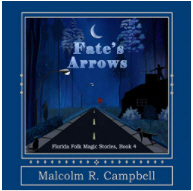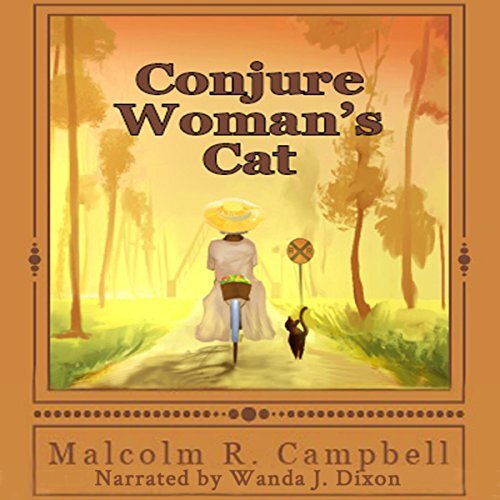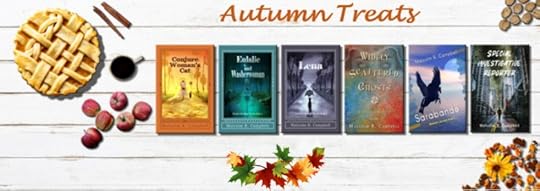Malcolm R. Campbell's Blog, page 67
October 11, 2021
Happy Indigenous People’s Day
 Indigenous Peoples’ Day is a holiday that celebrates and honors Native American peoples and commemorates their histories and cultures. On October 8, 2021, U.S. President Joe Biden became the first U.S. President to formally recognize the holiday, by signing a presidential proclamation declaring October 11 to be a national holiday – Wikipedia
Indigenous Peoples’ Day is a holiday that celebrates and honors Native American peoples and commemorates their histories and cultures. On October 8, 2021, U.S. President Joe Biden became the first U.S. President to formally recognize the holiday, by signing a presidential proclamation declaring October 11 to be a national holiday – Wikipedia
We were taught something else in school, one version or another of the poem credited to Jean Marzolo that began:
IN 1492
In fourteen hundred ninety-two
Columbus sailed the ocean blue.
He had three ships and left from Spain;
He sailed through sunshine, wind and rain.
Later we learned that Columbus wasn’t a nice guy, and yet, we kept giving him credit for discovering a continent where there were might have been as many as ten to 50 million people living in 600 tribes.
When students asked teachers how somebody could discover a place that was already settled, the answer was that savages don’t count. The nation bought into that absurd notion for years. In fact people still believe it. Sure, they’re giving up on Columbus in favor of, say–the Vikings even though that still begs the question of the continent’s residents whenever the first Europeans showed up.
“We” are slowly trying to clean up our act, at least in terms of politically correct rhetoric. Real change is another matter that’s slower than Christmas. Celebrating this day in honor of the people who lived here when “we” showed up and took over North America by force is progress of a sort. It falls short of what we need to do.
First, I think we should be honest about what we did, what the proud words “manifest destiny” meant to the people in our way. Most of the world was conquered over and over by somebody, and trying to return boundaries to what they were 100, 1000, or 10,000 years ago sounds like a recipe for chaos.
Second, we need to look at Indigenous Peoples as they are now rather than romanticizing them as they were several hundrfed years ago. We, those of us of European extraction, are not who we were in the 1600s, 1700s, 1800s, and 1900s and neither are Native Americans. Most of us of European extraction would take offense if we were portayed as no more advanced then we were many generations ago, and yet, we keep “celebrating” Native Americans as a people purportedly stuck in the past.
Third, we need to legalize in every possible way our statements that reservations are sovereign Indian Nations that owe no allegiance to the patriarchal “Great White Father” in Washington. They are just as sovereign as Canada and Mexico and their rights extend a lot farther than being able to run gambling casinos. The reservations need the power of the states and the voting rights that go along with that power.
Doing such things will create a mess and yet that will be positive progress.
–Malcolm
Malcolm R. Campbell
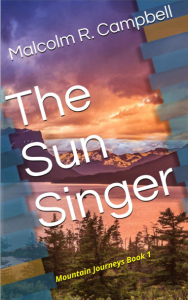 Publisher: Thomas-Jacob Publishing
Publisher: Thomas-Jacob Publishing
October 9, 2021
Action or Speculation: what drives the plot?
 When you read a novel like Clive Cussler’s 2021 Marauder in the Oregon Files series, you know you’re reading unapolgetic commercial fiction designed for readers of “page-turner” novels who appreciate high-stakes danger and lots of stuff that gets blown up, shot up, or shot down. I’m a fan of the books in the Oregon Files series and enjoy them for what they are: books in which action drives the plot.
When you read a novel like Clive Cussler’s 2021 Marauder in the Oregon Files series, you know you’re reading unapolgetic commercial fiction designed for readers of “page-turner” novels who appreciate high-stakes danger and lots of stuff that gets blown up, shot up, or shot down. I’m a fan of the books in the Oregon Files series and enjoy them for what they are: books in which action drives the plot.
I prefer suspense thrillers when they’re written by authors such as John Hart, like The Last Child and The Hush that place more emphasis on the location and the characters but still include high-stakes action. The Hush is, perhaps, one of the darkest books I’ve ever read, filled with mystery and a pervasive feeling of menace which I find more memorable than unvarnished commercial fiction.
![The Hush: A Novel by [John Hart]](https://i.gr-assets.com/images/S/compressed.photo.goodreads.com/hostedimages/1635446259i/32113921.jpg) Lately, I’ve been disappointed in several suspense books, the names of which I won’t mention here, that had interesting and compelling mysteries that might have been memorable novels had the authors not relied so heavily on speculation. That is to say, too much time was spent with the duller aspects of police work (the paperwork and the phone calls) and long chapters in which the main characters sat around over several bottles of wine and speculated about that was behind the mysterious events and what the bad guys have done and might be planning to do next. They’ve been warned not to look into these matters, but unlike the characters in Maurauder and The Hush, this danger isn’t overt or urgent.
Lately, I’ve been disappointed in several suspense books, the names of which I won’t mention here, that had interesting and compelling mysteries that might have been memorable novels had the authors not relied so heavily on speculation. That is to say, too much time was spent with the duller aspects of police work (the paperwork and the phone calls) and long chapters in which the main characters sat around over several bottles of wine and speculated about that was behind the mysterious events and what the bad guys have done and might be planning to do next. They’ve been warned not to look into these matters, but unlike the characters in Maurauder and The Hush, this danger isn’t overt or urgent.
While these speculation-driven plots might be more realistic to most of us since they focus on everyday people who are suddenly plunged into a mess, they don’t really engage the reader’s wont to be scared or to feel the rush of “nail-biting” danger. The result isn’t very satisfactory. Now, one need not sell his/her soul and fill a novel with nothing but sex and violence on every page. The characters can face other issues such as personal trials, ethical/moral questions based on their past or on what the future migh demand, family entanglements, and other plot- and theme-driven storylines that keep the reader interested and, when all is said and done, can be viewed as a substantial and satisfying book.
Sitting around and speculating about the cruel world outside the livingroom door is seldom as compelling or intersting to readers as being engaged in the cruel world outside that door–unless the characters have other kinds of challenges to face.
–Malcolm
Publisher: Thomas-Jacob Publishing
Listen or read, and I promise to keep you interested unless you’re, well, dead.
October 8, 2021
Show me the wisdom
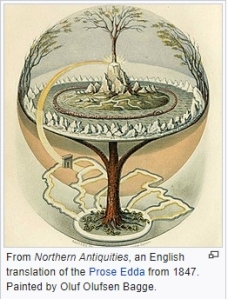 The world tree is a motif present in several religions and mythologies, particularly Indo-European religions, Siberian religions, and Native American religions. The world tree is represented as a colossal tree which supports the heavens, thereby connecting the heavens, the terrestrial world, and, through its roots, the underworld. It may also be strongly connected to the motif of the tree of life, but it is the source of wisdom of the ages. – Wikipedia
The world tree is a motif present in several religions and mythologies, particularly Indo-European religions, Siberian religions, and Native American religions. The world tree is represented as a colossal tree which supports the heavens, thereby connecting the heavens, the terrestrial world, and, through its roots, the underworld. It may also be strongly connected to the motif of the tree of life, but it is the source of wisdom of the ages. – Wikipedia
One common theme in magic, mythology, and fantasy is the idea that this “wisdom of the ages” is (or was) known by individuals called “the old ones.” Some say they came and went eons ago and left their wisdom right in front of us, and that all we had to do was figure out what we were looking at. Others say that whether the “old ones” still walk amongst us unseen or left eons ago, that their knowledge can only be found by years of meditation, study, and withdrawal from the day-to-day world.
I’ve been fascinated with this stuff since I was in high school and first came across the mystery school mysteries, comparative mythology, and similar approaches to “the big question.” I’ve noticed a lot of commonality between systems even though the myths and techniques are often somewhat different.
The only thing I’m sure of is that the more one studies all this, she less s/he knows. That doesn’t imply, though, that if one hadn’t studied it at all, s/he would know everything by the time s/he reached my age. All I have so far at my sage other than aches, pains, medications, and trips to the hospital is a monthly copy of “AARP Magazine.”
Maybe all this has been bunk. If so, it’s been joyful and addictive bunk that’s provided a lifetime of wondrous insanity. As luck–or the gods would have it–I’m not living on the street or, worse yet, in an institution where the psychiatrists ask, “Do you hear or see things that aren’t there?” My only response to that would be, “How would I know?”
When I became an old one, I didn’t have a visit from an older one who handed me a book titled “Here’s The Wisdom.” Or, if that did happen, I was asleep and missed it.
So, all I have to say about the wisdom is that it’s been a nice hobby and it’s given me some mysterious things to put in my novels. I have no idea what percentage of my readers think the wisdom is out there waiting for them and end up in an asylum where they’re asked “Do you hear or see things that aren’t there?” If so, I hope they know the right answer.
So reading about mysterious things is a risk sort of like bungee jumping. You might be yanked up into the high clouds where all will become known or you might hit bottom where nothing more will be known–or vice versa.
But what a ride.
–Malcolm
Publisher: Thomas-Jacob Publishing
Listen, and if you’re still “okay,” move on to the second audiobook in the series.
October 6, 2021
Resource for those interested in magic
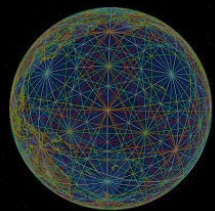 “Ley lines (/leɪ/) refer to straight alignments drawn between various historic structures and prominent landmarks. The idea was developed in early 20th-century Europe, with ley line believers arguing that these alignments were recognised by ancient societies that deliberately erected structures along them. Since the 1960s, members of the Earth Mysteries movement and other esoteric traditions have commonly believed that such ley lines demarcate “earth energies” and serve as guides for alien spacecraft. Archaeologists and scientists regard ley lines as an example of pseudo-archaeology and pseudo-science.” – Wikipedia
“Ley lines (/leɪ/) refer to straight alignments drawn between various historic structures and prominent landmarks. The idea was developed in early 20th-century Europe, with ley line believers arguing that these alignments were recognised by ancient societies that deliberately erected structures along them. Since the 1960s, members of the Earth Mysteries movement and other esoteric traditions have commonly believed that such ley lines demarcate “earth energies” and serve as guides for alien spacecraft. Archaeologists and scientists regard ley lines as an example of pseudo-archaeology and pseudo-science.” – Wikipedia
If you’ve read a lot of novels focusing on ancient magic, including The Da Vinci Code, you’ve probably encountered the concept of Ley lines. I’m interested in them, but have never had the opportunity to investigate them, much less travel to a purported location.
If you are curious about them, here’s a link to a post from Dreamcatcher Reality that’s the best explanation of Ley lines I’ve seen in ages: https://dreamcatcherreality.com/ley-lines-matrix/
I don’t necessarily agree with Wikipedia except to say that they are speaking about the view of mainstream science. I find Dreamcatcher reality to be an interesting site, but I don’t use its information in my novels because it’s rather like Jane Roberts’ “Seth Materials” in that I can’t prove it. Even thought I write fiction, I want the details to be true; doing that makes for a stronger story.
![Florida Folk Magic Stories: Novels 1-4 by [Malcolm R. Campbell]](https://i.gr-assets.com/images/S/compressed.photo.goodreads.com/hostedimages/1634997496i/32081258.jpg) Malcolm R. Campbell is the author of the four-part Florida Folk Magic Series in which the hoodoo magic was verified to the greatest extent possible.
Malcolm R. Campbell is the author of the four-part Florida Folk Magic Series in which the hoodoo magic was verified to the greatest extent possible.
September 29, 2021
It’s crap, but I can get it for you wholesale
Now that we’ve gotten rid of our towering roof antennas and torn the tin foil off the rabbit ears, I hoped TV would finally can all the late-night pitchmen who sold miracle products that usually broke before we got them (the products, not the pitchmen) out of the shipping boxes. Instead, we just have more of them, not counting those in Congress.
Some of the products are the same old same old. Beds and chairs that make you sleep like an angel–probably because they kill you. Vitamin supplements for $100 a bottle, buy now and we’ll throw in ten extra bottles for free exclusive of postage, packing, and handling. The supplements purportedly cure everything but stupidity.
 At first the new crap as exciting because it was something different than those kitchen gadjets that sliced and diced with only a 10% chance you’d be injured or set the kitchen on fire. Now we have electronic gear that is guaranteed not to tell the NSA where you are exactly and products that will run your house to much better than you do, they’ll probably run off with your spouse.
At first the new crap as exciting because it was something different than those kitchen gadjets that sliced and diced with only a 10% chance you’d be injured or set the kitchen on fire. Now we have electronic gear that is guaranteed not to tell the NSA where you are exactly and products that will run your house to much better than you do, they’ll probably run off with your spouse.
You know where the virtual assistants are going, other than Reno, right? One day we’ll tell our assistants to open thee pod bay doors and they’ll say, “I’m sorry, Dave. I’m afraid can’t do that.” When you point out that your name isn’t “Dave,” the support person will step in and say you should have purchased the 25-year warranty.
One time when my wife and I were buying a car, the salesman finished listing the two million features that made the car perfect. We were ready to sign. But then he said, “to protect your investment, can I interest you in a five year warrantly?” My wife answered, “Mr. Lundegaard, if the car is as good as you say it is, why do I need the warranty?” He looked like a deer in the headlights.
However, as we’ve all found out, telephone support people never look like deer in the headlights because their countries don’t have deer. Probably no headlights either. So, sooner or later we’re all going to find the pod bay doors closed and there won’t be anything we can do about it except to smile and say, “Well, at least I got the darned thing wholesale.”
Of course, if you’re dealing with somebody in Congress, s/he will tell you that your version doesn’t have any pod bad doors because, let’s say, the Sentate killed that part of the legislation, fearing that otherwise the crap would never fly. That doesn’t exactly make me feel warm and cozy, but what can I do? Vote? Right, what’ll help–unless we get a new party that doesn’t require “pitchman” or “wholesale” on a prospective candidate’s résumé.
I’m taking matters into my own hands. I’m buying a 1955 car with no electronics, especially snooping devices, in it and putting the tin foil back on my TV’s rabbit ears. Something to consider.
–Malcolm
September 27, 2021
If your beliefs are weak, ban books with opposing beliefs

One man who challenged the Harry Potter books did so because he believed the spells in the book are actual curses that summon demons. My response to that “logic” is:
Can you prove it?If these purported demons appear, isn’t your faith sufficient protection?No, of course he can’t prove it, and one reason he can’t is that he doesn’t know how spells work, and for most people considering his charge, he’s going to need some evidence. Show us the demons.
Suppose he produces the evidence. Can his faith not protect him? Apparently he’s unsure.
Most book challenges sound about this cowardly and absurd. That is, rather than disseminating opposing information to give readers an alternative, people choose to take the offending book off the shelves if they can:

Do you remember a game show called “The Weakest Link”? Banning these books shows that because an individual says, “I don’t like them so we should remove them from the library so that nobody else can read them,” we say, “okay,” and demonstrate the weakest link system of decision making.
We can do better. If we can’t, we’ve let things go too far and the contry is now in the hands of people who can’t think and/or who are scared to think, much less engage in a dialogue about opposing ideas.
You can fight the weakest links by reading everything they don’t like and asking your friends to do the same.
–Malcolm
 Malcolm R. Campbell
Malcolm R. Campbell
Publisher: Thomas-Jacob Publishing
September 26, 2021
Sunday’s one thing and another
 Billings Gazette photoEmpire Builder: “The westbound Empire Builder train 7/27, comprising two locomotives and 10 cars, was carrying 141 passengers and 16 crew members at the time of the 9/25 derailment. At approximately 3:55 p.m., the seven rear cars of the train derailed near the town of Joplin, Montana, located 75 miles (121 km) north-northeast of Great Falls, Montana, and 145 miles (233 km) north-northeast of Helena, Montana. Several cars were also tipped over after derailing. Three people onboard were killed and over 50 others were injured, including 15 who were hospitalized.” – Wikipedia (I’ve taken trains along this route many times, so the story caught my eye. During Glacier Park’s hotels’ season, there might have been park tourists on that train. Sad news.)
Billings Gazette photoEmpire Builder: “The westbound Empire Builder train 7/27, comprising two locomotives and 10 cars, was carrying 141 passengers and 16 crew members at the time of the 9/25 derailment. At approximately 3:55 p.m., the seven rear cars of the train derailed near the town of Joplin, Montana, located 75 miles (121 km) north-northeast of Great Falls, Montana, and 145 miles (233 km) north-northeast of Helena, Montana. Several cars were also tipped over after derailing. Three people onboard were killed and over 50 others were injured, including 15 who were hospitalized.” – Wikipedia (I’ve taken trains along this route many times, so the story caught my eye. During Glacier Park’s hotels’ season, there might have been park tourists on that train. Sad news.)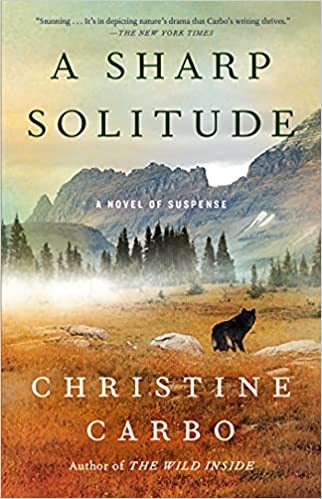 A Sharp Solitude, by Christine Carbo: I finished the fourth and, I believe, the last in the Glacier Park suspense series and found it somewhat slow going until I got near the end. Then, all hell broke loose. Worth the ride, I think, but less compelling than the series’ first three books.The O.C. (outside cat): The O.C., who we named Robbie, showed up on our doorstep months ago and decided to stay. So, we fed him and gave him water along with a covered box to sleep in. Queries to local folks on Facebook turned up nothing about a lost cat. He seemed healthy, but we took him to the vet to make sure before we began allowing him in the house. Fortuately, there haven’t been any “incidents” with our two older cats except a little hissing when personal space is invaded. Robbie’s inside the house a lot and that seems to be working even though he wants to spend most of the daylight hours outside.
A Sharp Solitude, by Christine Carbo: I finished the fourth and, I believe, the last in the Glacier Park suspense series and found it somewhat slow going until I got near the end. Then, all hell broke loose. Worth the ride, I think, but less compelling than the series’ first three books.The O.C. (outside cat): The O.C., who we named Robbie, showed up on our doorstep months ago and decided to stay. So, we fed him and gave him water along with a covered box to sleep in. Queries to local folks on Facebook turned up nothing about a lost cat. He seemed healthy, but we took him to the vet to make sure before we began allowing him in the house. Fortuately, there haven’t been any “incidents” with our two older cats except a little hissing when personal space is invaded. Robbie’s inside the house a lot and that seems to be working even though he wants to spend most of the daylight hours outside. Supper: I went all out preparing tonight’s supper. This proves that even though I’m a man, I’m not scared of going in the kitchen. I also know how to get ice cubes out of the freezer.Granddaughters: We haven’t seen my granddaughters for two years, first because I was having weekly cancer treatments and then because of COVID. Now, finally, it looks like we’ll be able to travel to Maryland to see them before they grow up and get married. (I was beginning to wonder.) I hope they remember who we are. In case you were about to ask, we don’t take the cats with us. Looking forward to the trip.
Supper: I went all out preparing tonight’s supper. This proves that even though I’m a man, I’m not scared of going in the kitchen. I also know how to get ice cubes out of the freezer.Granddaughters: We haven’t seen my granddaughters for two years, first because I was having weekly cancer treatments and then because of COVID. Now, finally, it looks like we’ll be able to travel to Maryland to see them before they grow up and get married. (I was beginning to wonder.) I hope they remember who we are. In case you were about to ask, we don’t take the cats with us. Looking forward to the trip. Weather: The remnants of two tropical storms dumped a lot of rain on us, so now, just as we’re enjoying sunny skies and lower temperatures, here comes Sam. According to those who know about such things, we should be in the clear. Hmm.
Weather: The remnants of two tropical storms dumped a lot of rain on us, so now, just as we’re enjoying sunny skies and lower temperatures, here comes Sam. According to those who know about such things, we should be in the clear. Hmm.Meanwhile, I hope you are enjoying your weekend and reading lots of books.
September 24, 2021
‘You’re not who you think you are’
The title of this blog is one of the more provacative statements made by Carolyn Elliott in her exhillarating 2020 book Existential Kink.
![Existential Kink: Unmask Your Shadow and Embrace Your Power (A method for getting what you want by getting off on what you don't) by [Carolyn Elliott]](https://i.gr-assets.com/images/S/compressed.photo.goodreads.com/hostedimages/1632578710i/31971286.jpg) It’s tempting to respond, “Oh yeah, well then who the hell am I?”
It’s tempting to respond, “Oh yeah, well then who the hell am I?”
Students of metaphysics, medicine, psychology, philsophy, and new age ideals–among others–have pondered the who am I really question for years. I don’t really feel competent to write a review of Elliott’s book here. She draws on a lot of areas, many of which we have stumbled across but never put together into a coherent system, about why we aren’t who we think we are and why our positive affirmations don’t seem to work.
One key is that we are more than our ego (in terms of ego, superego, and Id) and that the ego tends to ignore the unconscious part of the Self as though it’s either unimportant or doesn’t exist. So, from Elliott’s perspective–which agrees with Carl Jung–who we really are includes the part of ourselves we tend to deny. When we do this, the unconscious part of ourselves is actually running the show, that is to say, (in Jung’s terms) the shadow.
The answer, which appears counterinitutive, is integrating the Self rather than denying/disliking most of it. I leave that idea here as something to ponder. Jung says that the part your Self that you don’t include in your conscious approach to life will come upon you a fate. Elliott mentions that the whole Self always gets what it wants and that much of what we do in our daily lives amounts to magic we don’t realize we’re practicing.
Personally, I think I need to keep studying her book (or else).
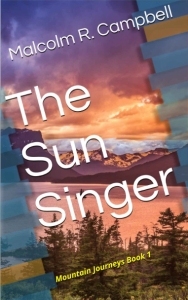 My novel “The Sun Singer” is a hero’s journey book, one means of integrating the Self.
My novel “The Sun Singer” is a hero’s journey book, one means of integrating the Self.
September 23, 2021
Enjoying Christine Carbo’s four-part Glacier Park Series
There are four novels in Carbo’s Glacier National Park police procedural series. I just finished The Weight of Night which was released in 2017. The books have a lot of snap, crackle and pop to them, strong characters, and accurate descriptions of the world of Glacier.
From the Publisher:
![The Weight of Night: A Novel of Suspense (Glacier Mystery Series Book 3) by [Christine Carbo]](https://i.gr-assets.com/images/S/compressed.photo.goodreads.com/hostedimages/1632468550i/31965296.jpg) In a land sculpted by glaciers, the forest is on fire. Thick smoke chokes the mountain air and casts an apocalyptic glow over the imposing peaks and vistas of Montana’s Glacier National Park. When firefighters are called in to dig firebreaks near the small town bordering the park, a crew member is shocked to unearth a shallow grave containing human remains.
In a land sculpted by glaciers, the forest is on fire. Thick smoke chokes the mountain air and casts an apocalyptic glow over the imposing peaks and vistas of Montana’s Glacier National Park. When firefighters are called in to dig firebreaks near the small town bordering the park, a crew member is shocked to unearth a shallow grave containing human remains.
Park Police Officer Monty Harris is summoned to the site to conduct an excavation. But with an incendiary monster threatening to consume the town, Monty seeks help from Gretchen Larson, the county’s lead crime scene investigator.
While the two work frantically to determine the true identity of the victim, a teenager suddenly disappears from one of the campgrounds in Glacier. Could the cases somehow be connected? As chances for recovery of the missing boy grow slimmer and the FBI finds only dead ends, Gretchen and Monty desperately race to fit all the pieces together while battling time, the elements, and their own unresolved inner conflicts.
The Weight of Night is the latest novel in an award-winning series which “paints a moving picture of complex, flawed people fighting to make their way in a wilderness where little is black or white” (Publishers Weekly). It is a gripping tribute to the power of redemption set against one of America’s most majestic and unforgiving landscapes.
Any one who enjoys police/suspense novels will probably find this to be a page-turner. Those of us who worked in the park and/or visit it often will enjoy “going back again” via Carbo’s stories.
–Malcolm
Malcolm R. Campbell
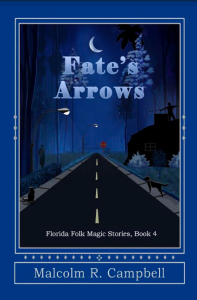 Publisher: Thomas-Jacob Publishing
Publisher: Thomas-Jacob Publishing
Malcolm R. Campbell’s novels include a few set in Glacier National Park and a few more, including “Fate’s Arrows,” set in north Florida.
September 20, 2021
Constantly re-designing my website
My boredom with everything static drives me to constantly tinker with my web site. It’s definitely eccentric because–so I have been told (or accused of)–I am eccentric. I suppose when it comes down to the why of the website, it’s a continuing attempt to find kindred spirits, those most likely to read my novels.
What I’ve done here is added two Tarot cards from the Swords suit in the Thoth deck, the ace and the Knight (called the king in other decks). Swords represent the various aspects of the Air element, and I am very partial to this. The ace is the beginning, the first thought/idea: as I look at the world (and magic) the ace comes before everything else. The knight is my “personal card” in the deck, representing the analytical trickster.
According to Biddy Tarot, “The Suit of Swords Tarot cards deal with the mental level of consciousness that is centered around the mind and the intellect. Swords mirror the quality of mind present in your thoughts, attitudes, and beliefs.” I like this way of looking at swords.
Raven Tarot, a wonderful site for those who use the Thoth deck, says, “So the Swords represent the qualities of intellect and rationality, but also to every considerated achievement like culture, science, philosophy or any ongoing process that later ends up as ‘history’. This almost explains by itself why the Swords can be blessing and malediction the same time.” I also like this way of viewing the suit.
These symbols on the website obviously mean something to those who read or study Tarot cards and the associated Tree of Life. Like a tuning fork that causes a nearby tuning fork to vibrate at the same frequency, I believe these symbols are also a calling card to like-minded people who may have little or know knowledge of the Tarot. The images of the cards speak of magic, of course, and a way of seeing the world outside our consual view of reality. Those are the prospective readers of my books.
Does the site sell any books? Hard to say. If so, that’s good. If not, then my point of view is “out there” and (for me) that’s more important than the books.

